Education Matters









Aurora Regino sued the Chico Unified School District for “socially transitioning” her child without her knowledge or consent. Regino’s child was identified as female at birth, currently identifies as a girl, and is referred to using she/her pronouns in the court decision and this summary.
Regino’s 11-year-old daughter, A.S., told her school counselor that she was having feelings of gender dysphoria and identified as a boy. A.S. told the counselor that she did not want her parents informed, believing they would be upset. The school counselor asked A.S. if she wanted to use male pronouns and a male name. A.S. said yes and the counselor then instructed A.S.’s teachers to call her by a new name and refer to her by male pronouns. Regino alleges that later, when A.S. expressed an interest in informing her parents, the counselor discouraged it and encouraged A.S. to talk to other family members first. Regino did not discover that the school was addressing her child as a boy until several months later, when A.S. told her grandmother. Regino reports that A.S. currently identifies as a girl again and no longer expresses feelings of gender dysphoria. She claims that her daughter had stopped wanting to identify as a boy but felt pressure to continue because that was how she was being addressed at school, which led to depression and anxiety.
Regino brought a lawsuit, challenging the District’s Administrative Regulation 5145.3, regarding nondiscrimination and harassment. Regino alleged that the Regulation violated her constitutional parental rights because it (1) permits school personnel to socially transition students expressing a transgender identity
and (2) prohibits school personnel from informing a student’s parents of this change unless the student expressly authorizes them to do so. There is an exception where law requires disclosure, or where the District has compelling evidence that disclosure is necessary to preserve the student’s health.
Regino argued that the regulation violated her constitutional parental right to make decisions regarding the care, custody, and control of her child. In her complaint, Regino argued that there are several different models for responding to a child’s feelings of gender dysphoria, including the “watchful waiting” model, the “hands off” model, the “psychotherapy” model, and the “affirmation” model. She says the school’s use of the “affirmation” model, which encourages social transitioning for children, is not appropriate for all children and situations. She argues that socially transitioning is a form of serious psychological treatment with significant future health risks, and thus, parental consent is necessary. She argued that the school is making a significant decision regarding the child’s psychological treatment that they are not trained to make, which parents and mental health professionals should make together. Regino relied on an unpublished nonbinding federal district court case from Kansas that stated that parents must be included in any decision regarding what names and pronouns that schools apply to their children.
The District argued that parental rights to make decisions regarding the care, custody, and control of one’s children do not extend to decisions regarding a school’s use of a child’s preferred pronouns and name. The District cited to two nonbinding federal district court decisions. In one case, the Central District of California found that students have a legally protected privacy interest under the California constitution with respect to information about their sexual orientation. In another case, a Maryland district court held that schools are not required to notify parents of their child’s transgender identity. The District argued that
the Regulation simply required that District staff respect the gender identity and privacy wishes of students. The District maintained that it had a legitimate state interest in protecting student’s privacy and creating a “zone of protection” from potential domestic abuse.
The district court granted the District’s motion to dismiss and stated that Regino is advocating for an expansion of parental substantive due process rights, unsupported by legal precedent. She failed to provide any controlling legal authority that would permit the Court to find that her constitutional parental rights included the right to be informed of and consent to the school’s use of male pronouns for her child. To succeed on a claim for constitutional violation, Regino would have to show that a constitutional right was violated by someone acting under color of state law, such that it shocked the conscious. She failed to show that her constitutional parental rights covered the circumstances in this case. Therefore, the regulation only had to pass “rational basis review” and show that it was rationally related to a legitimate state interest. The court held the school had a legitimate state interest in protecting students’ privacy and creating a “zone of protection” from potential domestic violence.
Related Updates:
The California Department of Education has a Frequently Asked Questions page that discourages schools from sharing information about a student’s transgender identity, even to parents, without the student’s consent. It states that, “Disclosing that a student
is transgender without the student’s permission may violate California’s antidiscrimination law by increasing the student’s vulnerability to harassment and may violate the student’s right to privacy.”

AB 1266 (Education Code 221.5) requires that California schools allow students to participate in sex-segregated school programs and activities, including athletic teams and competitions, and use facilities consistent with their gender identity. However, it neither requires nor forbids schools from notifying parents if a student uses a different gender identity at school.
After the Regino decision came out, Chino Valley Unified School District and Murrieta Valley Unified School District adopted new regulations that require schools to notify parents and guardian writing within three school days if their child asks to be identified by a gender or name different from what was assigned at birth or if their child uses a bathroom or participates in activities that do not align with the gender provided on their student record.
On the federal level, Congressman Doug LaMalfa (R-Richvale) has introduced H.R. 1585, the Prohibiting Parental Secrecy Policies in Schools Act of 2023. Under the measure, schools that get funding under Title II of the Elementary and Secondary Education Act would be prevented from using pronouns inconsistent with a child’s biological sex without parental consent.
For more information on some of our upcoming events and trainings, click on the icons:



Peter Q. Nguyen, a Senior Labor Relations Consultant in our Los Angeles office, has extensive experience, having negotiated over forty master agreements and doing labor relations work across many jurisdictions, including municipalities, special districts, K-12, higher education, entertainment, and healthcare. He has also engaged in complex policy analysis, drafted legislation, and taught public policy at the university level.
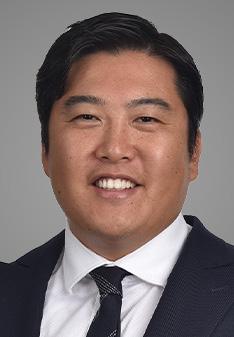
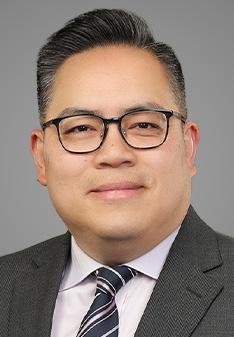
Will Abramovitz, an Associate Attorney in our San Francisco office, provides labor and employment law and litigation expertise to our clientele. Prior to joining LCW, Will was an associate at a major international law firm and a San Francisco based law firm where he obtained significant experience litigating and advising on labor and employment matters and complex commercial disputes in both state and federal courts through all stages of litigation.
Patrick Skahan, a Senior Counsel in the Los Angeles office, provides advice and counsel to our public agency and nonprofit clients in all matters pertaining to business and facilities, employment law, discrimination, and litigation.
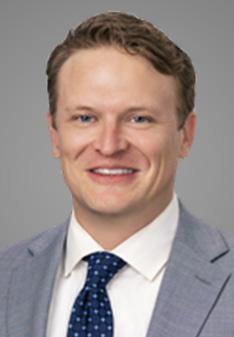

Simone Del Barco, an Associate Attorney in the Los Angeles office, provides advice and counsel to our clients in all matters pertaining to labor and employment law. Simone has experience in all phases of litigation and has handled matters ranging from alleged violations of the Fair Employment Housing Act, California Labor Law and Wage and Hour Law.


In 2018, Plaintiff Nigel B. was an eighth-grade student at John Muir Middle School, part of the Burbank Unified School District. A fellow eighthgrader, Gianni, frequently physically and verbally bullied Nigel. Other students also witnessed this bullying. However, no one reported it to school officials.
Nigel’s physical education teacher, Dylan Washausen, “passively” supervised students and was always on his phone during class. Students in his class routinely roughhoused Nigel. Washausen told students who were involved in altercations or injuries not to “go home and whine about this to [their] parents.” During ultimate frisbee, a student, Richard, twisted Nigel’s arm and asked him if he wanted to die. While Nigel did report this to the assistant principal responsible for student discipline, neither the principal nor the assistant principal alerted Washausen, and Richard’s bullying continued. Another student, Nick, pushed Nigel from behind so hard that his head bounced off the ground. Washausen yelled at Nick and asked Nigel if he wanted to get Nick in trouble. Nigel said “no” because he believed that “snitches [got] stitches.” Washausen did not discipline Nick.
On April 17, 2018, Gianni and Nigel were playing a competitive game of touch football on opposing teams during a mandatory physical education class. When Nigel caught a pass, Gianni ran into him at full speed, sending Nigel flying several feet in the air. Nigel fell on his left side and screamed in pain as he tore a ligament in his knee. A student ran to tell Washausen, who was surprised by the injury.
Nigel sued the District and Washausen for negligence and breach of a mandatory duty in violation of Education Code Section 49079. Education Code Section 49079 requires a school district to inform teachers about students who have engaged in or who are reasonably suspected of causing or threatening physical injury or willfully using violence on another person.
At trial, the District requested that the court instruct the jury on the primary assumption of risk doctrine. The primary assumption of risk doctrine applies to activities “involving an inherent risk of injury to voluntary participants where the risk cannot be eliminated without altering the fundamental nature of the activity.” The trial court ruled that the doctrine did not apply because the injury occurred in a mandatory class. The jury found that the District breached a mandatory duty under the Education Code, that Washausen was negligent, and that Nigel suffered resulting harm. The jury awarded Nigel $500,000 for future medical expenses, $750,000 for past noneconomic damages, and $500,000 for future noneconomic damages. The District appealed.
The California Court of Appeal for the Second District found that the District did not breach its mandatory duty because Nigel did not provide substantial evidence to show that the District’s failure to report other students’ conduct toward him to teachers caused his injury. To find liability for a breach of Section 49079 (a), the breach must be a substantial factor in the cause of the injury.
There was no evidence that the District knew of Gianni’s behavior, so the District could not have breached their mandatory duty in that manner. The Court of Appeal also found that even though Gianni acted intentionally and not negligently, the trial court should have instructed the jury on comparative fault and the jury should have been able to allocate fault accordingly. The Court of Appeal remanded on the issue of comparative fault.
The Court of Appeal upheld the trial court’s ruling that the primary assumption of risk doctrine does not apply to a mandatory class. The Court of Appeal emphasized that “voluntary participation” is necessary for the primary assumption of risk doctrine to apply, and mandatory physical education class activities are not voluntary. Accordingly, the trial court did not err when it refused to instruct the jury on the primary assumption of risk doctrine.
Nigel B. v. Burbank Unified Sch. Dist. (2023) 93 Cal. App. 5th 64, reh’g denied (July 25, 2023).

We are pleased to announce that Nancy López has joined the management team as our Business Development Manager. Nancy has extensive marketing experience, actively working in the field for over 25 years. She comes to us after serving in management level positions with advertising agencies, the world’s largest food company (consumer product goods), the former largest retail wholesaler in the Western United States, and most recently, at a private TK-12 grade school.
“I am thrilled to join LCW’s management ranks and be part of such a prestigious organization,” said Nancy on assuming her new position, “I look forward to leveraging my skills and expertise in marketing and business development to contribute to the continued success of LCW and help drive its growth in the legal industry.”

In late 2012, UC Berkeley professor James O’Brien attended a computer graphics conference in Singapore. He went to dinner and then a bar with several graduate students attending the conference, including UC Berkeley graduate students and a first year Ph.D. student from the Massachusetts Institute of Technology (MIT) named Jane Roe.
In 2014, a UC Berkeley Ph.D. student identified as “F.B.” completed an anonymous exit survey saying that O’Brien created a hostile and sexist environment by regularly insulting students and peer faculty and harassing at least five female students. As an example, F.B. stated that at a December 2011 conference, O’Brien strongly encouraged a female first year graduate student from MIT to go back to his hotel room with him. Although this referred to the incident with Roe, the date was incorrect by one year. The anonymous survey was shared with the Office for the Prevention of Harassment and Discrimination (OPHD), the heads of the Department of Electronical Engineering and Computer Sciences, David Culler and Tsu-Jae King Liu, and the Department’s Executive Director of Student Affairs, Susan Kauer. OPHD confirmed that they had no complaints against O’Brien on file. Culler, King Liu, and Kauer decided that Culler would look into the matter further. Culler figured out who F.B. was and spoke with her over the phone. F.B. felt it was not her place to share further information about the MIT student. Culler then met with O’Brien, who denied everything.
Over three years later, in December 2017, Roe submitted a complaint to the OPHD alleging that O’Brien made unwanted and disparaging sexual comments and conduct towards her at the 2012 conference in Singapore.
OPHD investigated the complaint in 2018 and found O’Brien sexually harassed Roe under the University’s Sexual Violence and Sexual Harassment (SVSH) policy. OPHD referred the matter to the Vice Provost who then filed a formal complaint in 2019 with the Privilege and Tenure Committee (P&T) for violation the Faculty Code of Conduct. O’Brien insisted that this violated the University’s “three-year rule,” which required the Chancellor to file disciplinary charges no later than three years after the Chancellor is deemed to have known about the alleged violation. O’Brien argued that F.B. reported the incident in 2014 – over four years before the investigation. In March 2020, O’Brien received written censure and a one-year suspension.
O’Brien filed a petition for a writ of mandate to compel the UC Regents to set aside the disciplinary decision, raising procedural, substantive, and due process objections. He alleged an excess of the UC Regents’ jurisdiction, failure to conduct a fair disciplinary hearing, misuse of discretion by failing to follow the law, and making unsupported findings and decisions. The trial court denied O’Brien’s petition and found that the administrative record supported P&T’s findings.
The First District Appellate Court of Appeal affirmed the trial court’s denial of petition. The Court of Appeal found that the University did not violate the threeyear rule since the rule is triggered when there is a report of an alleged violation, rather than the receipt of evidence from which, with the exercise of reasonable
diligence, the University could have learned of the alleged violation. The court found that the main purpose of F.B.’s preliminary report was to expose the hostile environment that O’Brien created within the research group, rather than the violation of conduct committed by his behavior towards Roe. Because F.B. did not report or allege a violation of the Faculty Code of Conduct in regard to Roe, the court found that the University timely filed the disciplinary complaint.
The Court of Appeal also found that Roe was O’Brien’s colleague according to the Faculty Code of Conduct. The Court of Appeal found a nexus between the incident the bar and the conference because they were only at the bar together because of the conference, and professional matters were discussed there.
Finally, the Court of Appeal found that the one-year suspension was not “constitutionally excessive.”
O’Brien v. Regents of University of California (2023) 92 Cal. App. 5th 1099.

Tuesday, November 7, 2023 10:30am - 11:00am
Student housing at community colleges is on the rise. As Districts are providing student housing, each District should be advising students of its housing rules and regulations and taking the necessary steps to reduce the District’s risks of liability. These issues can be addressed by providing students with residential agreements. This session will provide an overview of the terms and conditions Districts should consider including in student housing residential agreements, such as granting a revocable license to students, housing rules, fees, security concerns, and compliance with other District rules and policies.
The California Community Colleges Board of Governors approved new title 5 regulations concerning the Rising Scholars Network program. These amendments are in Title 5 of the California Code of Regulations, Sections 56800, 56801, 56810, 56811, and 58108. The purpose of the Rising Scholars Network program is to encourage the enrollment, retention, and success of justice-involved students in the California community colleges. “Justiceinvolved” means a person who is currently or formerly incarcerated in a California correctional facility or a juvenile facility. The new regulations describe requirements for providing support and accommodations to Rising Scholars students. They also amend Section 58108 on registration and enrollment procedures to grant priority enrollment to Rising Scholars students and to student parents who have minor children.
The new regulations became effective on August 24, 2023. Community college districts must conform their policies and procedures to the regulatory requirements within 180 days of August 24, 2023. The approved final text available on the Chancellor’s Office Regulatory Actions Page
The LCW Labor Relations Certification Program is designed for labor relations and human resources professionals who work in public sector agencies. It is designed for both those new to the field as well as experienced practitioners seeking to hone their skills. Participants may take one or all of the classes, in any order. Take all of the classes to earn your certificate and receive 6 hours of HRCI credit per course!

Join our upcoming HRCI Certified - Labor Relations Certification Program Workshops:
1. September 7 & 14, 2023 - The Rules of Engagement: Issues, Impacts & Impasse

2. October 19 & 26, 2023 - Nuts & Bolts of Negotiations
3. November 2 & 9, 2023 - The Public Employment Relations Board (PERB) Academy
Visit our website: www.lcwlegal.com/ lrcp
IBM employee Paul Thai needed the following items to accomplish his duties: internet access, telephone service, a telephone headset, and a computer and accessories. IBM furnished Thai with these items in its offices. On March 19, 2020, Governor Newsom ordered all California residents to stay home or at their place of residence except as needed to maintain continuity of operations of certain critical sectors.
After the Governor’s order went into effect, IBM directed Mr. Thai and several thousand of his coworkers to continue performing their regular job duties from home. Mr. Thai and his coworkers personally paid for these work expenses while working from home. IBM never reimbursed its employees for these expenses.
Thai thereafter sued IBM for its failure to reimburse its employees for these expenses. Thai alleged that Labor Code Section 2802(a) required the reimbursement.
Section 2802(a) provides in relevant part, “An employer shall indemnify his or her employee for all necessary expenditures or losses incurred by the employee in direct consequence of the discharge of his or her duties, or of his or her obedience to the directions of the employer . . .” Section 2802(c) defines “necessary expenditures or losses” as including “all reasonable costs”.
Courts have found that purpose of this section is to protect employees from bearing the costs of businesses expenses they incur in doing their jobs.
IBM’s chief argument was the Governor had forced its employees to work remotely. IBM argued that the employee’s expenditures were not in direct consequence of the discharge of their duties and were not at the direction of the employer. Rather, they incurred those expenses because of the Governor’s stay at home order.
The California Court of Appeal disagreed, noting that IBM was improperly inserting a causation requirement into Section 2802. The Court held that the reimbursement obligation “…does not turn on whether the employer’s order was the proximate cause of the expenses; it turns on whether the expenses were due to performance of the employee’s duties. It may be true that the Governor’s March 2020 order was the ‘but-for’ cause of certain work-from-home expenses, but nothing in the statutory language can be read to exempt such expenses from the reimbursement obligation.” The Court of Appeal ruled in favor of Thai.
Thai v. International Business Machines Corporation, 93 Cal. App. 5th 364 (2023).
Note:
This case provides important clarification on an issue that employers have been grappling with since the beginning of the COVID-19 pandemic. Labor Code 2802 is being interpreted to encompass all expenses employees incur in the performance of their job duties – including equipment and services needed to perform their duties at home.
On June 29, the United States Supreme Court issued its highlyanticipated decision involving raceconscious admission programs at a public and private university. As expected, the Court determined that the admissions programs violated the United States Constitution and federal law. This decision is likely to have a minimal impact on California public educational institutions since State law already prohibits the consideration of race in higher education and K-12 admissions.
Students for Fair Admissions (SFFA) brought suit against Harvard College and the University of North Carolina at Chapel Hill (UNC).1 Specifically, SFFA claimed that both Harvard and UNC impermissibly considered race when making admission decisions. SFFA lost in the lower courts based on prior Supreme Court precedent. Twenty years ago, in Grutter v. Bollinger, the Court ruled that colleges could consider race as one of many factors for attaining a more diverse student body. Justice 1 Harvard College is the undergraduate college of Harvard University.
Sandra Day O’Connor famously wrote in that opinion, “We expect that 25 years from now, the use of racial preferences will no longer be necessary to further the interest approved today.” These two new cases gave the Court the opportunity to reconsider its earlier decision.
The Equal Protection Clause of the Fourteenth Amendment prohibits distinctions between individuals based on race or color, except in very limited circumstances. Previously, the Court had allowed race to be a factor, so long as it was not a determinative, when considering higher education applications. This case overturns that precedent.
Harvard and UNC argued that race-conscious admissions should be permitted because they were necessary to achieve the “educational benefits of diversity,” such as training future leaders, acquiring new knowledge based on diverse outlooks, promoting a robust marketplace of ideas, and preparing engaged and productive citizens. The Court noted that while these are commendable goals, they not sufficiently focused or measurable to establish a compelling interest that would permit consideration of race. As a result, the
Court held the admissions process violated the Equal Protection Clause.
The Court also noted that considering race broadly for the purpose of admissions stereotyped applicants and served as a negative factor for some students, such as Asian Americans. Considering race when making an admissions decision assumed that applicants of a certain race would think alike or provide a certain viewpoint, which the Supreme Court noted, is an overgeneralization. Moreover, even the definitions of race were problematic. Applicants were required to check a box with the racial category that best reflects them, but these categories were both overly-broad (e.g., South Asian and East Asian students are represented as “Asian”), and under-inclusive (e.g., there is no category at all for Middle Eastern students).
The Court expressed a deep, and long-held skepticism for any consideration of race. It noted that there cannot be a system of justice “that picks winners and losers based on the color their skin.” The Court said the same is true for admissions; just as an admission system that discriminated against Black and Latino applicants based on race would be impermissible, so is one that favors those same applicants based on race.
As a result of voters passing Proposition 209 in 1996, the California Constitution has long prohibited public schools and other public sector agencies from considering race, sex, color, national origin, or ethnicity in education, employment, or contracting decisions. The Equal Protection Clause applies to public, but not private schools. However, all schools that take federal funds, as did Harvard, may not discriminate against student applicants based on race. The decision is virtually certain to encourage greater scrutiny of admissions programs that consider race as a factor.
In light of today’s decision, schools should consider whether there are effective approaches to create diverse student bodies without considering race. The Court itself, in fact, provided suggestions for lawful ways to increase diversity. It wrote: “nothing in this opinion should be construed as prohibiting universities from considering an applicant’s discussion of how race affected his or
her life, be it through discrimination, inspiration, or otherwise.” It warned, however, that these questions cannot be a substitute for making racebased decisions. “[T]he student must be treated based on his or her experiences as an individual – not on the basis of race.”
Some additional options that may increase diversity without considering race include:
• Decreasing or eliminating consideration of legacy in admission decisions.
• Decreasing or eliminating consideration of standardized tests in admission decisions.
• Increasing consideration of socioeconomic status in admission decisions.
• Increasing consideration of diverse geographic communities in admission decisions.
• Considering whether applicants speak multiple languages.
• Allowing applicants to discuss overcoming adversity of all kinds in application essays.
• Increasing outreach efforts to schools serving diverse communities.
• Creating programs that allow potential applicants to experience the school and demonstrate qualities that may not be apparent on a traditional application.
Finding alternatives may be challenging and imperfect, but LCW has the expertise to help. LCW is well suited to help our clients navigate admission procedures, and already regularly advises its clients to navigate admissions to increase diversity without considering race or other protected classifications as a factor in education and employment decisions. If you have any questions about this issue, please contact our Los Angeles, San Francisco, Fresno, San Diego, or Sacramento office.
Students for Fair Admissions, Inc. v. President and Fellows of Harvard College (2023) 600 U.S. __ [143 S. Ct. 2141].
On July 13, 2023, AB 1151 amended Education Code Sections 82537, 82542, and 82548 and added Section 82543, which are part of the Civic Center Act. The Civic Center Act permits community college districts to grant organizations permission to use their facilities and grounds when such use does not interfere with instruction programs or services. The Civic Center Act distinguishes between (1) nonprofit organizations or clubs or associations organized for general character building or welfare purposes, and (2) all other organizations that may use the facilities. When a district grants use to an organization in the first category, the district may charge an amount not to exceed:
1. The cost of opening and closing facilities, if no employee would otherwise open and close the facilities as a part of their normal duties.
2. The cost of an employee’s presence during the organization’s use of the facilities, if necessary, and if that employee’s presence is not part of their normal duties.
3. The cost of janitorial services, if necessary, and if not part of the janitor’s normal duties.
4. The cost of utilities directly attributable to the organization’s use of the facilities.
For organizations in the second category, districts may charge either: (1) direct costs or (2) the fair rental value.
AB 1151 revised the definition of organizations in the first category. Previously, Education Code Section 82542, subdivision (a), listed numerous examples of these types of organizations, such as parent-teachers’ associations, Girl Scout and Boy Scout troops, and senior citizens’ organizations. The revised statute now broadly identifies the first category of organizations as nonprofit organizations or clubs or associations organized for “athletic activities for youth, charitable purposes, educational purposes, or the civic well-being of the community.” This amendment simplifies and clarifies what groups districts may grant use of facilities to and which organizations may only be charged the enumerated amounts for their use.
AB1151 also grants districts the right to permit organizations, clubs, or associations organized for youth or senior citizens and for cultural activities to use district facilities without charge. It also added Education Code Section 82543, which requires that when districts grant the use of their facilities, districts must give priority access to organizations that serve people from socioeconomically disadvantaged communities. Finally, the legislature increased the minimum insurance coverage amounts that are required for users from $300,000 to $1,000,000. However, districts may require more than this minimum coverage.
The Chancellor’s Office plans to readopt the corresponding regulations that had sunset according to their terms. The regulations have not been amended from their prior form and will go into effect on August 24, 2023. The regulations set forth how districts shall calculate the amount to charge users.

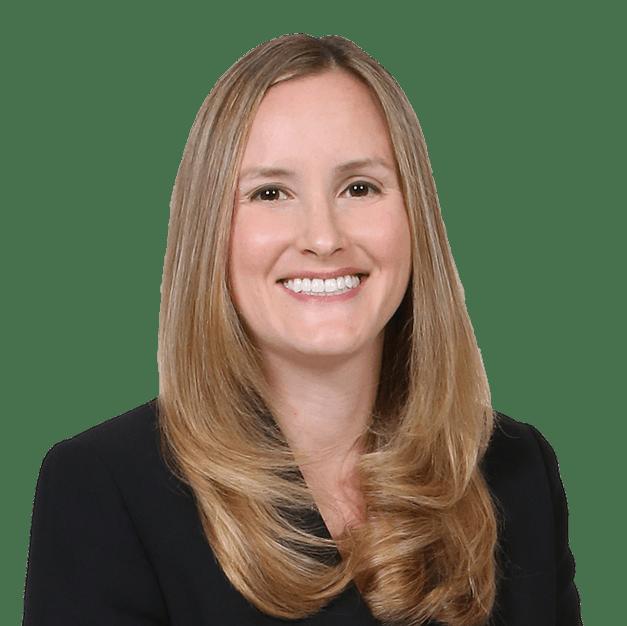
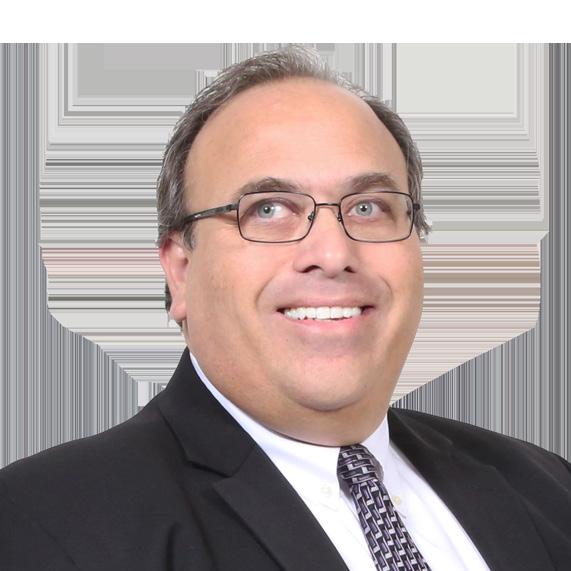




The employee claimed additional pay pursuant to the operative memorandum of understanding based on her allegations that she performed duties beyond the scope of her classification. Adrianna and Brian established that the “new” duties the employee had been assigned were in fact contained within the first job duty listed in her job description. As a result, the arbitrator denied the grievance and the employee was not entitled to additional pay.
The union claimed that the public agency had assigned veterinarians supervisory duties outside the scope of their class specification in violation of the operative memorandum of understanding. Adrianna and Chris established that: while the general class specification for veterinarian did not list administrative “supervision” in the examples of duties, the job duty statement specific to the public agency (and which one of the grievants helped draft) highlighted the supervisory duties; the job announcements for the position included supervisory duties; and the grievants (all of whom were hired after the job duty statement was updated) were specifically
questioned about their supervisory experience during their interviews. The arbitrator denied the union’s grievance.
A hearing officer disagreed with a chief of police’s decision to terminate the employment of a senior officer. The basis for the termination was the investigation finding that the officer had a sexual relationship with a then-19-year-old member of the city’s youth program.
The hearing officer’s decision stated that reasonable minds could differ on the level of penalty, and that the chief did not abuse his discretion in selecting termination. Yet, the hearing officer substituted her discretion for the chief’s as to the severity of the officer’s transgression. She reduced the penalty to a two-month suspension without pay.
The city filed a petition for writ of mandate to challenge the hearing officer’s decision. At hearing, LCW argued the law that a decisionmaker’s penalty assessment must stand unless the evidence shows that the penalty was an abuse of discretion. The fact that the hearing officer expressly stated in her decision that the chief had acted within his discretion, was “game over” for the judge. The judge agreed that penalty determination for this misconduct should be left to the chief and upheld the termination.
Whether you are looking to impress your colleagues or just want to learn more about the law, LCW has your back! Use and share these fun legal facts about various topics in labor and employment law.

• UCs, CSUs, and community colleges define first-generation students differently. All UC campuses use the same definition, but CSUs and community colleges vary. However, the Community College Chancellor’s Office has a comparatively restrictive definition and considers any college attendance of parents to bar students from being considered “first-generation.”
• According to an article by CalMatters, a coalition is moving forward towards putting an initiative on the ballot to make a “high-quality education” part of the California constitution. Critics are concerned about possible over-litigation of education matters.

LCW has four community college district consortiums across the State! Consortium members enjoy access to quality training throughout the year, discounts on other LCW products and events, and unlimited, complimentary telephone consultation with an LCW public education attorney on matters relating to employment and education law questions (including questions involving governance, business, facilities, and student matters!). We’ve outlined a recent consortium call and the provided answer below. Client confidentiality is paramount to us; we change and omit details in the ERC Call of the Month.
This consortium question was answered by Meredith Karasch, Senior Counsel in LCW’s Los Angeles office. She can be reached at 310.981.2059 and at mkarasch@lcwlegal.com
How can we allow an employee to take leave for education unlinked to their current position? Our Collective Bargaining Agreement (CBA) specifies that a non-paid leave for education must be linked to their current position.
If the District has previously interpreted the CBA broadly to include this type of situation, then there is a current practice of interpreting the CBA provision of leave for education broadly. In addition, the Board may approve unpaid leave at its discretion under Education Code Section 88192(d). However, this may create a practice and future requests may be impacted.


 Liebert Cassidy Whitmore
Liebert Cassidy Whitmore